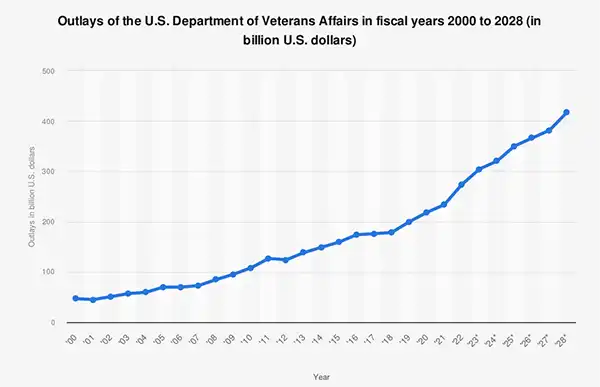Reclaiming Your Rights: How to Appeal A VA Decision Letter

Key Takeaways
- The process of appealing a VA decision letter can be overwhelming, but it’s important to remember that one always has rights and options.
- It’s pivotal to understand the decision letter thoroughly as a result your eligibility for disability benefits, retirement pay, educational aid, or participation in another VA program will be affected.
- There are a plethora of grounds for appeal when the new evidence of the person is not taken into consideration, an error in interpreting the facts of the case, the medical condition has worsened, or much more. To begin one must complete and submit VA Form 21-0958, Notice of Disagreement. This informs the Department of Veterans Affairs (VA) that you intend to file a plea.
- It is necessary to exercise patience and perseverance throughout the process as it might take months and years for the decisions to come.
If you’re a veteran who has received a decision letter from the Department of Veterans Affairs (VA) that is incorrect or unfair, you’re not alone. The process of pleading a VA decision letter can be overwhelming, but it’s important to remember that one always has rights and options. Interestingly, the U.S. Department of Veterans Affairs has increased its outlays, as shown in the graph below, illustrating the data for fiscal years 2000 to 2028.

Here are the steps for effectively appealing a Department of Veterans Affairs decision letter and strategies to ensure the best chance at a favorable outcome.
Understanding the Decision Letter
Before diving into the appeal process, it’s pivotal to understand the decision letter thoroughly. The Department of Veterans Affairs decision letter outlines the VA’s determination regarding your claim for benefits. It is possible that as a result of this decision, the eligibility for disability benefits, retirement pay, educational aid, or participation in another VA program will be affected.
Grounds for Appeal
In disagreement with the VA’s decision, use the right to appeal. There are several valid grounds for it, such as:
New Evidence
One can make an appeal decision when the new evidence of the person is not taken into consideration during the initial review of their claim. Documents such as medical records, service records, or the opinions of an expert could all be considered part of this body of evidence.
Clear and Unmistakable Error
If you believe there was an error in interpreting the facts of the case, make a plea based on a clear and unmistakable error (CUE). This indicates that an error was committed, which, if rectified, would likely have led to a different decision.
Change in Condition
You have the right to file an appeal if, since the initial decision, your medical condition has worsened. To do so, consider providing updated medical evidence demonstrating the change in the circumstances during the following span of time.
Initiating the Appeal
To begin the process, complete and submit VA Form 21-0958, Notice of Disagreement. This form gives the Department of Veterans Affairs (VA) notice that you intend to file an appeal and offers a condensed justification for why there is a disagreement with the decision.
The Appeal Process
The process consists of multiple stages, each with its specific requirements. These stages include:
Supplemental Claim
In this process, it is imperative for the person to provide additional supporting evidence to make relevance to his/her argument. All the documents should be legitimate and should back up the claims that are to be made in the appeal process.
Higher-Level Review
If an error has occurred in the initial review. Consider requesting a higher level from a more senior VA employee. They will surely reconsider the claim in light of the evidence that has been accumulated.
Board of Veterans’ Appeal
If unsatisfied with the previous outcomes to the Board of Veterans’ Appeals (BVA). A judge will conduct an official review of the situation and then decide based on the provided evidence.
Do You Know: There are three options for people who pick a board appeal; request a direct review, submit new evidence, or review for a hearing.
The Waiting Game
One of the challenges in the process is the waiting period. It may take several months or even years to reach a decision regarding the plea. However, it is necessary to exercise patience and perseverance throughout the process.
Accessing Legal Help
If you are finding the process of appealing the decision difficult, think about getting legal representation. Throughout the process, organizations such as veterans service organizations (VSOs) and legal clinics can offer knowledgeable guidance and support.
Navigating the VA Maze
The VA appeals process, while necessary, can be complex and intimidating. The intricacies of regulations and paperwork often feel like navigating a maze. You should not become disheartened because on this path traveling for a long time might seem disturbing.
Make contact with other veterans, participate in veteran-specific support groups, and seek guidance from veterans who have successfully navigated the process.
Final Words
Reclaiming your benefit rights after receiving a Department of Veterans Affairs decision letter is a multi-step journey that requires patience, diligence, and determination. The chances of winning are enhanced by a thorough comprehension of the decision, the strength of justifications, and the strategic handling of the process.
Remember that one always has the right to appeal a decision that goes against them and present new evidence.










